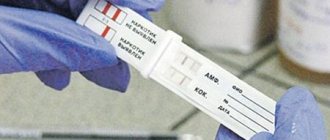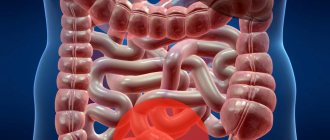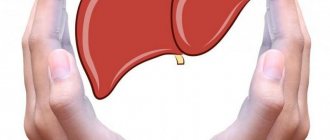Excess fluid has an extremely negative effect on the body’s condition, let’s decide how to remove it.
To maintain vital functions, our body needs to regularly receive a certain amount of fluid. However, sometimes there is too much of this fluid in the body, and this in turn leads to edema, problems with the kidneys, excess weight, etc.
Despite the fact that the problem of excess fluid is very unpleasant, it can be dealt with quite simply. To do this, you just need to follow a few tips, change your diet and routine.
Causes of water retention in the body
Water accumulation occurs for various reasons. A person can change hormonal levels, this can be influenced by environmental elements. Excess water may be a consequence of past illnesses. For example, excess fluid appears due to the action of pathogenic bacteria or chronic diseases. Hoping that the swelling will go away on its own and drink less for the sake of it is not a way out of the situation. It is necessary to find out the cause, and for this you need a diagnosis made by a specialist.
The reason for water retention in the body can also be insufficient use. For example, a person, seeing swelling, decides to remove it in the most convenient way - drink less, but the swelling does not disappear. The reason is that the body is able to regulate urine output on its own and if there is not enough water in the body to remove waste, it begins to accumulate it until the required amount is collected. Many people mistakenly believe that if water remains in the body, the best way to get rid of it is to drink a diuretic.
Important: Constant use of diuretics leads to edema.
Excess salt can also retain water in the intercellular space. A healthy person should consume up to 15 g of salt per day, but the dose can be increased if he is actively involved in sports or in the summer, when salts leave the body through sweat. Therefore, an active person can lose up to 50 g of salt per day. But to remove excess, you need to drink more water, which will dilute the salt and restore electrolyte balance.
Why does fluid remain in the body? Drinking at night is one of the reasons. If you go to bed at ten, your last drink should be no later than 20:00. Drinks consumed later will cause additional kidney stress. This may result in you going to the toilet at night and waking up with a swollen face in the morning. It is best to drink actively before 19:00.
So one of the reasons for water retention in the body is a passive lifestyle. The fluid in the intercellular space is concentrated in the lymphatic vessels due to the contraction of the muscle tissue that surrounds them. Accordingly, it becomes difficult for the body to remove water.
Edema during pregnancy
Fluid retention during pregnancy occurs for several reasons:
- The fetus growing in the uterus, as the period increases, increasingly compresses the vessels located in the pelvic area. Therefore, the outflow of blood and lymph through the vessels begins to suffer, which is manifested by swelling of the lower extremities.
- The load on the legs increases, especially in the third trimester. Venous vessels are sometimes unable to adequately respond to the load that has fallen on them.
- Under the influence of hormones, a pregnant woman accumulates fluid, which does not need to be removed if it does not exceed the norm.
A pregnant woman may complain of swelling, a feeling of heaviness in the legs, night cramps in the calf muscles, and numbness. These symptoms may increase as the pregnancy progresses. During pregnancy, if the normal outflow of blood from the veins and lymphatic vessels of the lower extremities is disrupted, varicose veins of the anus and perineum may appear. They do not affect the course of pregnancy in any way, but if a woman is at risk of thrombosis, then it is necessary to monitor the indicators of the blood coagulation system to prevent the occurrence of thrombosis.
Pregnant women should not be prescribed medicinal diuretics. They have a powerful effect and greatly disrupt the water-salt balance of a woman’s body, which is much worse than edema syndrome. They have a wide range of side effects, including negative effects on the fetus. Diuretic medications are prescribed only by a doctor in situations where the benefits of their use outweigh the possible harm.
Folk remedies should also be treated with caution and should not be prescribed to all pregnant women for swelling. Their effect takes a long time to manifest, so there are difficulties with dosing them and observing the desired result. Most folk remedies do not have much experience of use in pregnant women, so their effect on the fetus and the body of the expectant mother is unknown.
Signs of fluid retention in the body
External signs will be visible to the naked eye:
- excess weight;
- swelling of the face;
- bags under the eyes;
- swollen legs or arms;
- sickly appearance and poor health.
There are several ways to determine excess fluid in the body:
- Press your finger on an area of skin (preferably on a limb) and see how quickly it recovers. If the resulting hole does not recover within a few seconds, this is a clear signal of dysfunction of the lymphatic system.
- Purchase a special analyzer scale that determines water levels in the body, and then compare this measure with the norm.
- Do a full examination at the clinic.
What are the dangers of excess fluid accumulation?
Fluid retention spoils a person’s appearance (leads to edema, weight gain), which causes many complexes and psychological disorders. The pathological phenomenon negatively affects the entire body, since it disrupts the functionality and structure of tissues and organs.
If this body signal is left without proper attention, then such a violation can subsequently lead to much more serious diseases. In cases where water is retained due to any disease, inaction or self-medication threatens its transition to an advanced stage.
Tests to identify hashish
Today, there are many different tests that help doctors identify hashish addiction.
By saliva
Unfortunately, the test based on saliva analysis is the least effective. Some relatives, to confirm their suspicions, buy drug addiction tests at the pharmacy. Testing at home will show a positive result just an hour after smoking hashish. As you can see, the effectiveness of such a rapid test is questionable. If a person consumed THC half a day ago, the test result drops to zero. That is, if the test was carried out 10-12 hours after smoking the plan or Afghani, the accuracy of the test will be minimal. Most likely it will show a negative result.
By urine
In this case, the tests show greater effectiveness, since they can easily recognize even the timing and duration of drug use. The period for removing hashish from urine varies from 3 weeks to 3 months. Naturally, it depends on the frequency of use, experience, age and quality of the drug, as well as other characteristics of the addict’s body.
This biochemical analysis can be carried out both at home using a pharmacy test, and in the hospital of our drug treatment clinic. The period for detecting hashish in urine varies from 5 to 7 days. That is, within a week from the date of last use, the test will show a positive result. However, there are even more accurate laboratory tests and tests that can detect and distinguish traces of THC one month after consumption. As a result, the drug can be detected in urine within 40-50 days.
Hair and nails
Among the highly accurate rapid drug tests, narcologists highlight tests that determine the presence of drugs in the hair and nails of an addict. The test is effective for 1.5-2 months from the date of last use. However, with long-term use, it is possible to recognize cannabinoid drugs even 1.5 years after quitting them. As you can see, hashish, being a concentrated narcotic substance, lingers in organ tissues for a very long period.
Do you want to know about the cost of services?
8 call our specialist
Contraindications
Before getting rid of excess fluid, it is necessary to take into account a number of contraindications that make it impossible to solve this problem on your own.
These include:
- heart failure;
- diabetes;
- lupus erythematosus;
- hypovitaminosis;
- pancreatitis and gout;
- post-infarction state;
- vascular stenosis;
- hypotension;
- compensated and uncompensated alkalosis.
It is precisely because of the many contraindications that it is necessary to combat overhydration under the supervision of a specialist.
What else does the absorption rate depend on?
To calculate how long it takes for vodka to disappear from the body, you need to take into account the functioning of the digestive organs and the personal characteristics of a person. Emotional state also plays a role. If you are calm and peaceful, then the dose of alcohol will not be felt so acutely, but it will also take longer to be eliminated. But severe stress leads to the fact that within a few seconds you will feel the symptoms of intoxication. But you’ll get back to normal pretty soon if you don’t overdo it.
How to remove fluid from the body
Water retention has a negative impact on both our health and well-being. This is often the reason why women are dissatisfied with their own appearance. In addition, this problem can significantly affect the functioning of our kidney or cardiovascular system. In connection with the above, many of you are probably wondering: how to get rid of this problem? Of course, changing some habits can help combat excess water. Below we have prepared for you some tips on how to remove excess fluid from the body.
Drink more water
Drinking enough fluids can also help you lose weight. The recommended type of liquid is mostly non-carbonated mineral water. However, drinking green or white tea can also effectively help get rid of excess water. We should avoid large amounts of coffee, alcoholic drinks and sugary carbonated drinks.
Remove excess salt
Another step you need to take to get rid of excess water from your body is to limit your salt intake. Salt is a source of sodium necessary to maintain proper water-electrolyte and acid-base balance. However, excessive salt intake can cause swelling and fluid retention. Remember that we should not only limit the amount of salt added to our meals, but also reduce our intake of salty foods, such as breadsticks, crackers, salted nuts, chips, pickled foods, canned and smoked foods. High salt content is also found in highly processed foods such as instant and powdered foods.
Increase your intake of potassium-rich foods
Potassium deficiency can cause swelling, so increasing your intake may help relieve water retention. Foods that remove fluid from the body: tomatoes, potatoes, avocados, bananas, as well as dried fruits such as figs and peaches, and some nuts. In addition to being high in potassium, these foods also contain significant amounts of fiber, vitamins, and other minerals.
What foods retain water in the body?
All products containing synthetic additives, dyes, preservatives. Unfortunately, it is now impossible to find other products in stores, so it is worth focusing on using homemade dishes.
Products that should be limited:
- semi-finished products, hamburgers, cheeseburgers, French fries and other fast food;
- snacks, beer crackers, chips;
- fried foods;
- any preserves, marinades and pickles;
- sweets in the form of cakes, cookies, chocolate, honey;
- fatty dairy products (cream, butter, yoghurts with preservatives);
- mayonnaise, ketchup and other sauces;
- spread, margarine, hard cheeses;
- egg;
- products with yeast (pasta, baked goods, white bread);
- smoking (lard, sausages, fish, meat);
- sweet and carbonated drinks, syrups;
- tea and coffee retain water in the body if sugar is added to them;
- alcohol.
Try diuretic products
Foods with diuretic properties include parsley, celery, parsnips, eggplant and watermelon, for example. Of these, parsley has the strongest diuretic properties. Increases the volume of urine excreted, which effectively reduces the amount of fluid in the body. Moreover, parsley also helps in treating kidney stones by reducing the deposition of calcium oxalate. Parsley (both leaves and root) can be freely added to all types of dishes. The leaves can be added to salads, soups or smoothies. However, it is best to choose dried leaves only when fresh parsley is not available. The dried leaves can also be used to make an herbal infusion, which also has diuretic properties.
Exercise
The next best thing you can do to get rid of fluid retention is to exercise. Physical activity stimulates metabolic processes and increases the release of water through sweat. Due to the large loss of fluid and electrolytes during exercise, you should also remember to hydrate your body.
Try going to a sauna or bathhouse
Visiting a bathhouse or sauna is a quick and pleasant way to solve the problem.
Good to know: 1 bathing session can be equated to a full workout, since the skin can release from 0.5 to 2 liters of sweat in 30 minutes in a steam bath.
The effectiveness of bathing procedures can be explained by the fact that the cooling process is triggered by high body temperatures, as a result of which the glands begin to function more intensively and sweating increases.
Despite the great benefits of high temperature moist or dry air on the body, bathing procedures are not suitable for everyone. This is due to the fact that when visiting a steam bath, all organs and systems of the body are subjected to heavy loads. Therefore, people with severe heart and vascular diseases are prohibited from steaming. You should not visit baths in case of acute inflammatory processes, diseases in the acute phase, malignant tumors and severe neurovegetative disorders.
Diagnostics
The cause of edema can be assumed depending on the location where it is located. Edema predominantly of the lower extremities speaks in favor of damage to the venous bed or the cardiovascular system. With venous insufficiency, edema does not pose a particular danger, while cardiac edema can quickly spread upward, up to the lungs, causing symptoms of respiratory failure. This condition requires urgent care and hospitalization.
To find out the cause of edema, correct medical history collection, identification of risk factors (bad habits, nutrition, sports, pregnancy), and laboratory tests are also important. During an objective examination, the doctor can palpate the swelling, determine its distribution throughout the body, temperature and density.
What not to do to remove excess fluid from the body
Many people want to quickly lose weight by quickly removing fluid from the body, without thinking about the possible harm to their health. What you should not do so as not to regret it later:
- engage in self-diagnosis and treatment, especially when it comes to diuretics and other types of medications;
- get carried away with teas for weight loss, the action of which is often based only on the diuretic effect;
- introduce restrictions on drinking, especially clean water. The result will be exactly the opposite.
There are many ways to remove excess water from the body to lose weight. But before you start using them, you need to get all the advice from an expert.
Is beer okay?
Frequently asked questions: “Well, what should we drink anyway: boiled water, mineral water, tea, coffee?” Answer: in light of water-salt metabolism, the body doesn’t care! Even from a puddle. He is only interested in H2O and sodium. Intestinal infections, caffeine overdose, excess sugar - these are all other “departments” of the body. Anything except beer is good for maintaining osmolarity. Why besides beer? And there is no sodium in it. At all! Therefore, in countries where a lot of beer is consumed, disturbances in water-salt metabolism are often visible.
Basic fictions and myths
We come across many statements about alcohol and its use. Our friends tell us one thing, and we read the other on the Internet. How to understand where is truth and where is fiction? Let's look at the main myths and find out which of them cannot be believed.











